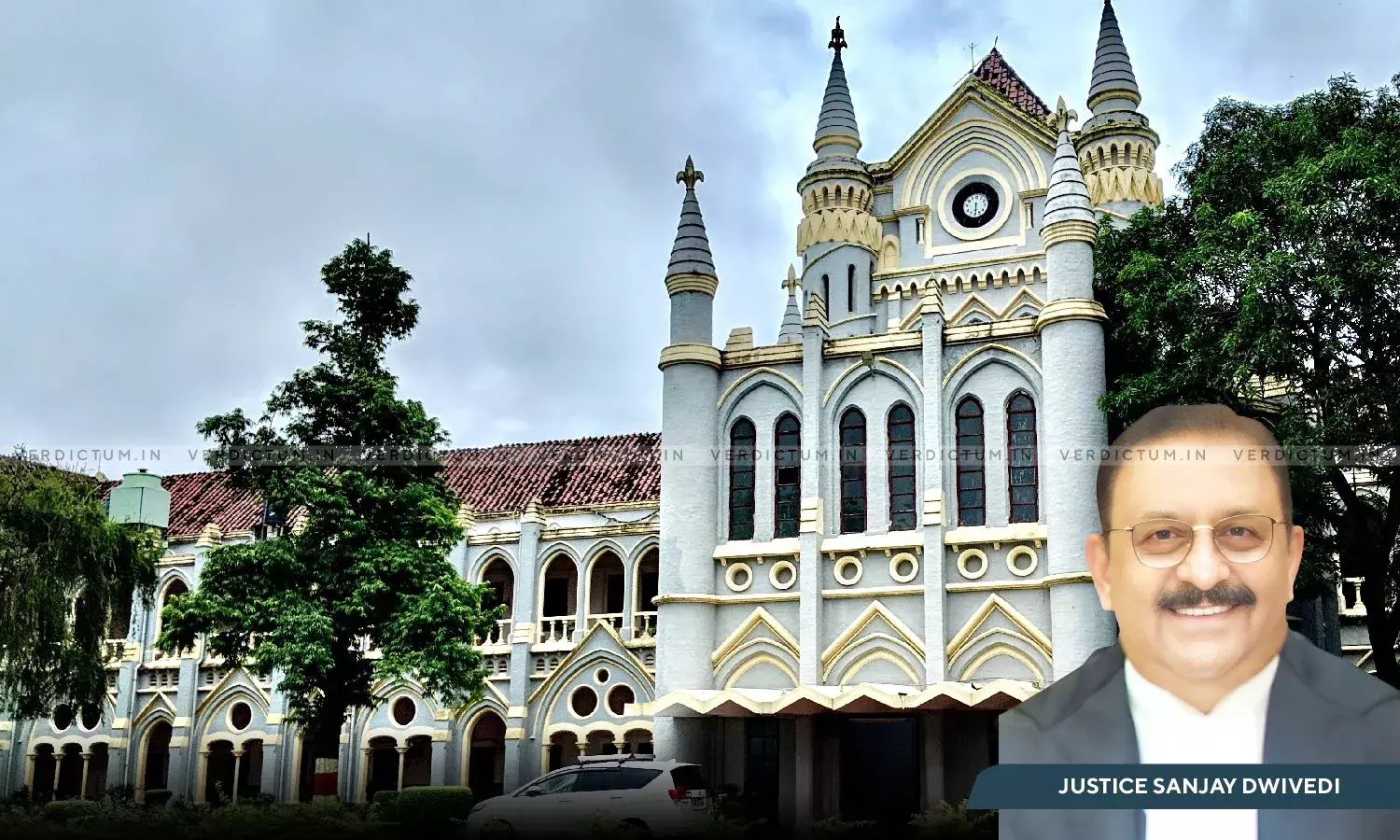Unnatural Sex U/s. 377 IPC Committed By Husband With Wife Not Offence: Madhya Pradesh HC Quashes Case Against MLA Umang Singhar

The Madhya Pradesh High Court, Jabalpur Bench while dismissing an FIR against MLA Umang Singhar has noted that an unnatural sex under Section 377 of the Indian Penal Code (IPC) committed by husband with wife cannot be treated as an offence.
Singhar had filed a petition under Section 482 of CrPC for quashing the FIR registered on the fulcrum of a complaint made by his wife (respondent) against him for the offences punishable under Sections 294, 323, 376(2)(n), 377, 498-A, and 506 of IPC.
A Single Bench of Justice Sanjay Dwivedi held, “In other way, the unnatural offence has not been defined anywhere, but as has been considered by the Supreme Court in the case of Navtej Singh Johar (supra) that any intercourse, not for the purpose of procreation, is unnatural. But respectfully I find that when same act as per the definition of Section 375 is not an offence, then how it can be treated to be an offence under Section 377 IPC. In my opinion, the relationship between the husband and wife cannot be confined to their sexual relationship only for the purpose of procreation, but if anything is done between them apart from the deemed natural sexual intercourse should not be defined as ‘unnatural’.”
The Bench further held that normally, sexual relationship between the husband and wife is the key to a happy connubial life and that cannot be restricted to the extent of sheer procreation and hence, if anything raises their longing towards each other giving them pleasure and ascends their pleasure then it is nothing uncustomary and it can also not be considered to be unnatural that too when Section 375 IPC includes all possible parts of penetration of penis by a husband to his wife.
Advocate Vibhor Khandelwal represented the petitioner while Senior Advocate Sanjay Agrawal and Government Advocate Puneet Shroti represented the respondents.
Brief Facts -
The petitioner was a Member of M.P. State Legislative Assembly and was an elected MLA for the third time. He had a goodwill in the society and as per the petition, his wife i.e., the respondent misbehaved with him as well as his staff members and showed violent attitude towards them after few months of marriage. A complaint was registered in that regard by one of the maids of the petitioner and respondent and based on the same, an FIR was registered. The demeanour of the respondent drastically became violent and she started giving threat to the petitioner for fallaciously implicating him in criminal case. She also raised an illegitimate demand of Rs. 10 crore and as such the petitioner was extorted.
As per the petitioner, when the respondent came to know about the complaint, she also submitted a complaint making various false, frivolous, and baseless allegations against him. Thereafter, both the husband and wife abominated each other and started living separately. An FIR was registered against the petitioner. The principal thrust of challenge was on the ground that essentially Section 375 of IPC defines ‘rape’ and as per the definition, it covers all possible acts, which prior to amendment of 2013, were falling under Section 377 of IPC. The matter was, therefore, before the High Court.
The High Court after hearing the arguments of the counsel said, “Although Shri Agrawal has drawn attention of this Court towards the definition of Section 375 of Clause ‘Fourthly” that “With her consent, when the man knows that he is not her husband and that her consent is given because she believes that he is another man to whom she is or believes herself to be lawfully married.”, but in view of the discussion made in foregoing paragraphs and submissions of learned counsel for the petitioner saying that indisputably the petitioner belongs to a tribe and marriage was solemnized according to the custom of tribes under which second marriage is legally permissible, the respective Clause of definition of Section 375 is not attracted. Indeed, the complaint ex facie crystalizes that respondent No.2 stated that she is wife of petitioner and factum of marriage has also been mentioned by her, ergo at such juncture, the application of Clause “Fourthly” Section 375 of IPC is meaningless.”
The Court added that as such, the contention of the counsel for the respondent with regard to re-investigation and filing supplementary charge-sheet under Section 173(8) of CrPC is also insignificant, rather it does not have substance for the reason that even in the statement made before the police, respondent stated that the marriage was solemnized as per tribes’ custom.
“… in my opinion the act of the petitioner is not punitive for the offence punishable under Sections 376(2)(n) and Section 377 of IPC. Quite apart, for constituting offence under Section 498-A IPC, there is no allegation of any demand of dowry”, observed the Court.
The Court concluded that at the most offence under the Domestic Violence Act could have been registered, but that too immediately after commission of such crime and that for other offences i.e., Sections 294 and 506 of IPC, no date, place, and time has been disclosed and as such the complaint is a malicious prosecution filed by the respondent as there was inter se dispute between husband and wife.
Accordingly, the High Court allowed the petition and quashed the FIR against the petitioner.
Cause Title- Umang Singhar v. State of Madhya Pradesh & Anr.


